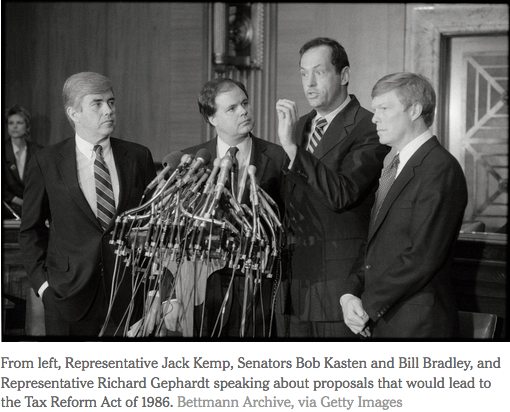Throughout, the press played a positive role. Its scrutiny was a bulwark against special interests. More important were the tireless staff members who knew the arcane details of tax policy and were savvy enough to understand the explosive political terrain.
In the end, the Tax Reform Act upheld the general interest over the special interests, showing that clear principles, legislative skill and persistence could change a fundamentally unfair system.
After it was over, the team gathered at the White House on a bright October afternoon as President Reagan signed the bill. But Senator Packwood and I were stuck by chance in Oregon campaigning — he for re-election and I for the Democratic candidate for governor — and fog made us miss our flight back to Washington. Yet, at Mr. Packwood’s suggestion, we did our own news conference. Bipartisanship then was something to be proud of.
Over the years, bill after bill has chipped away at the changes we made, and people today once again see unfairness everywhere in the code. Tax liability appears to be totally random. Loopholes cost over $1 trillion, and equal incomes don’t pay equal taxes. The question is the same as in 1986: Can our leaders put principle and country over politics and party, and work together for the common good?
Given the extreme polarization within and between the parties, the odds are against success. Legislating is a very human experience in which trust and mutual respect play critical roles. But 1986 proved that when both are present, big things can get done.




